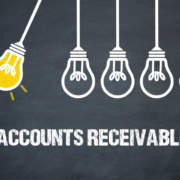Many small businesses open business credit cards to help meet their capital needs. Roughly 67% of business owners have business credit cards, but less than half of them use them as their primary spending source. As a flexible line of credit, they’re easier to open than a line of credit and great to have “just in case.” Others may use them to consolidate debt.
But, as a business tool, they must be used effectively and responsibly.
Picking the Best Business Credit Card by Intended Use
The best business credit card for your business will depend both on how you intend to use it.
One of the most common reasons small business owners apply for credit cards is to help with cash flow management. Even if your business is doing well it can be difficult to align cash flows. A bill comes due before a major customer has paid their invoice.
Access to revolving capital allows business owners to cover hiccups like these without impairing key business relationships. You’ll want a card with a decent grace period and perhaps no annual fee.
Another use is to help seasonal businesses manage seasonality better. If you own a business which needs to stock up for the holidays you’ll have to purchase inventory before you’ve made any sales. A lower interest rate, as you plan on carrying a balance, will be more important to you than perks.
Think about how you plan on using your card before applying for one.
Picking the Best Business Credit Card by Type of Business
Your industry and business type could steer you towards the type of card you need. While you should take into account interest rate and grace period, which is the amount of time you have to pay off a charge before it incurs interest, there is more to consider when you plan on using the card for business.
For example, if you owned a local boutique and needed to travel to industry trade shows on purchasing trips, a business credit card with travel rewards might be your best choice. You could purchase next season’s inventory on the card, thus earning points, and use those points for airline tickets to the next trade show.
Another business owner might never need to travel for business reasons and would find a travel rewards card to be worthless. If you owned a restaurant and your intent was to use the card to pay food vendors on Friday, then pay off those balances Monday with the weekend’s receipts, perhaps a cashback card could be good. The cashback you earned would essentially be a discount on inventory.
There is more to picking a business credit card than its interest rate. How it’s used, and the perks it offers, can positively impact your business.
Picking a Perks Program
If you do want a card with a perks program, plan on paying an annual fee. Credit card companies charge this fee to cover the costs of administering the program. Fees are typically around $100 but can go up to several hundred dollars if it’s a robust program.
Make sure that whatever perks you receive from the card will more than offset the fee before signing up. If you take out a Delta Amex, the fee is currently $95 a year. However, you’ll get one free checked bag on every Delta flight. If you travel a lot for work and Delta is the carrier you use the fee will be paid for in two flights. Plus, you’ll earn miles.
The perks should align with your business. Available programs will give you hotel points, airline miles, and cash back on purchases. Some offer discounts at associated retailers, too, and double points spending periods. Take some time to research the different options and find one that will give you the most bang for your swipe.
Using a Business Credit Card Properly
The interest on business credit cards ranges from 13.12% to 15.37%. If you have an excellent credit score, typically above 750, you could qualify for a lower interest rate. But, because of these interest rates, you want to carefully manage your card.
It would be a mistake to view a business credit card as permission to stop tracking cash flow and trying to match inflows with outflows. While you can charge an expense before money has come in, make sure that you use the associated revenues to immediately pay off the card. Whenever possible, try not to carry a balance.
If it does become necessary to carry a balance for a few months, make a plan to pay it off. Put extra payments into your budget. Make sure that expense is really affordable and you won’t have to pay it off for long.
Monitor the spending on your business credit card, and set up text alerts if balances go above a certain limit. As late fees can be quite expensive, set up automatic payments of your minimums. Paying late could also cause your interest rate to rise.
Check your monthly statements as part of monitoring your spending. While not incredibly common, people make mistakes. Perhaps a vendor double-charged a shipment or had agreed to a discount that they didn’t apply. You’ll want to dispute any inaccurate charges immediately.
Lastly, make sure that all spending on the business credit card is for business purposes. If you don’t keep good records, and if you mingle your spending, you could be disqualified from deducting the interest. And it will muddle the accounting of your business’s results.
Accounting for Credit Card Interest
Interest on business-related debt is tax deductible, which is a big perk of having a card dedicated to the business. But every expense on the card must be for a business purpose. If you charge something for personal use, the interest on that charge isn’t deductible.
Obviously, going through each statement line by line and pulling out personal charges would be a waste of time. Plus, if you were ever to be audited the IRS may try to disqualify some of the interest you deducted if there is any question about your card usage.
Talk with your accounting and tax professional before claiming deductions, as not all expenses will be allowable business expenses. But if you follow the simple rule of keeping things separate, the interest on your business credit card should be allowable.
A business credit card can be a great asset to your business but perform due diligence before applying with the first offer that shows up in the mail.









